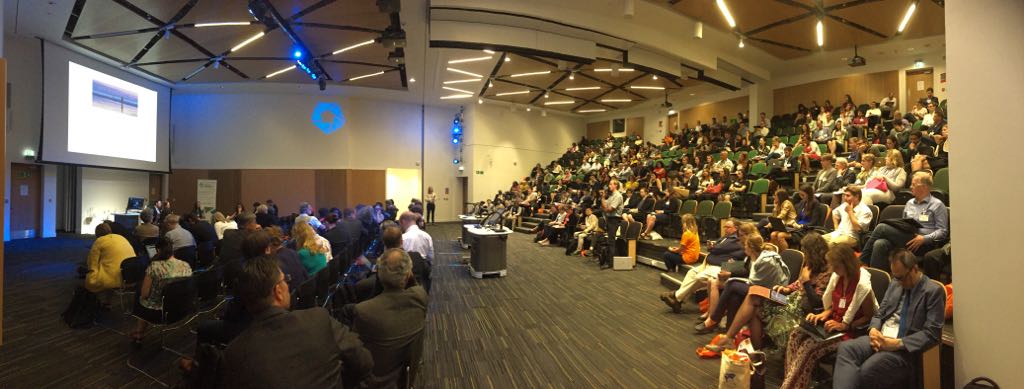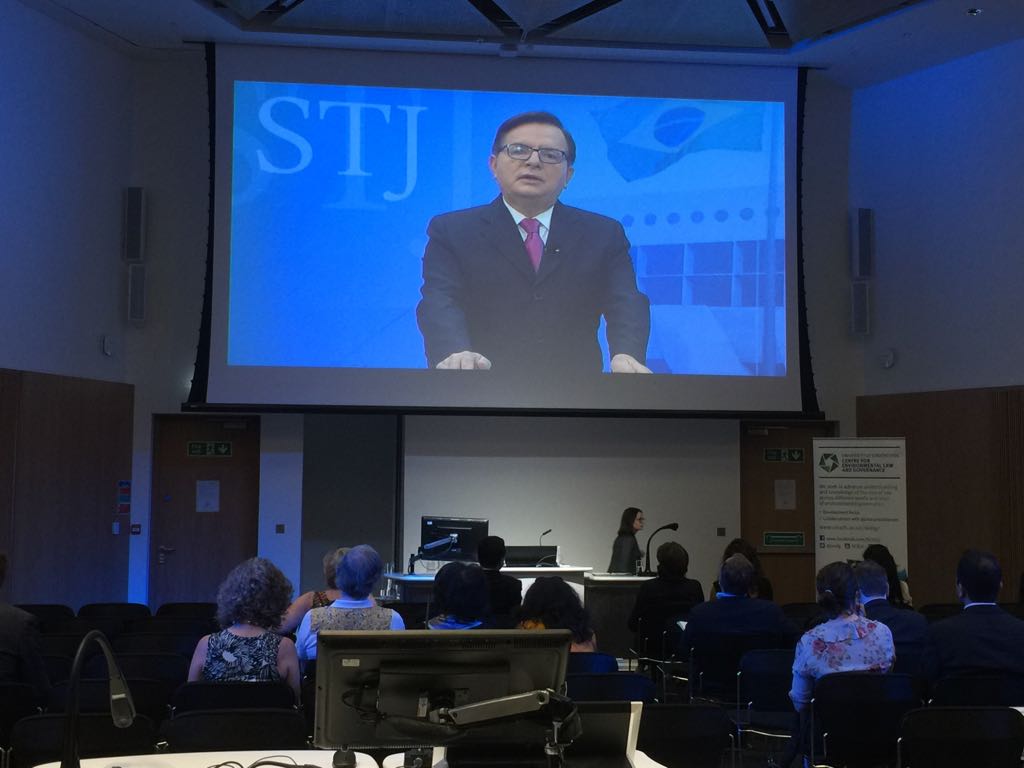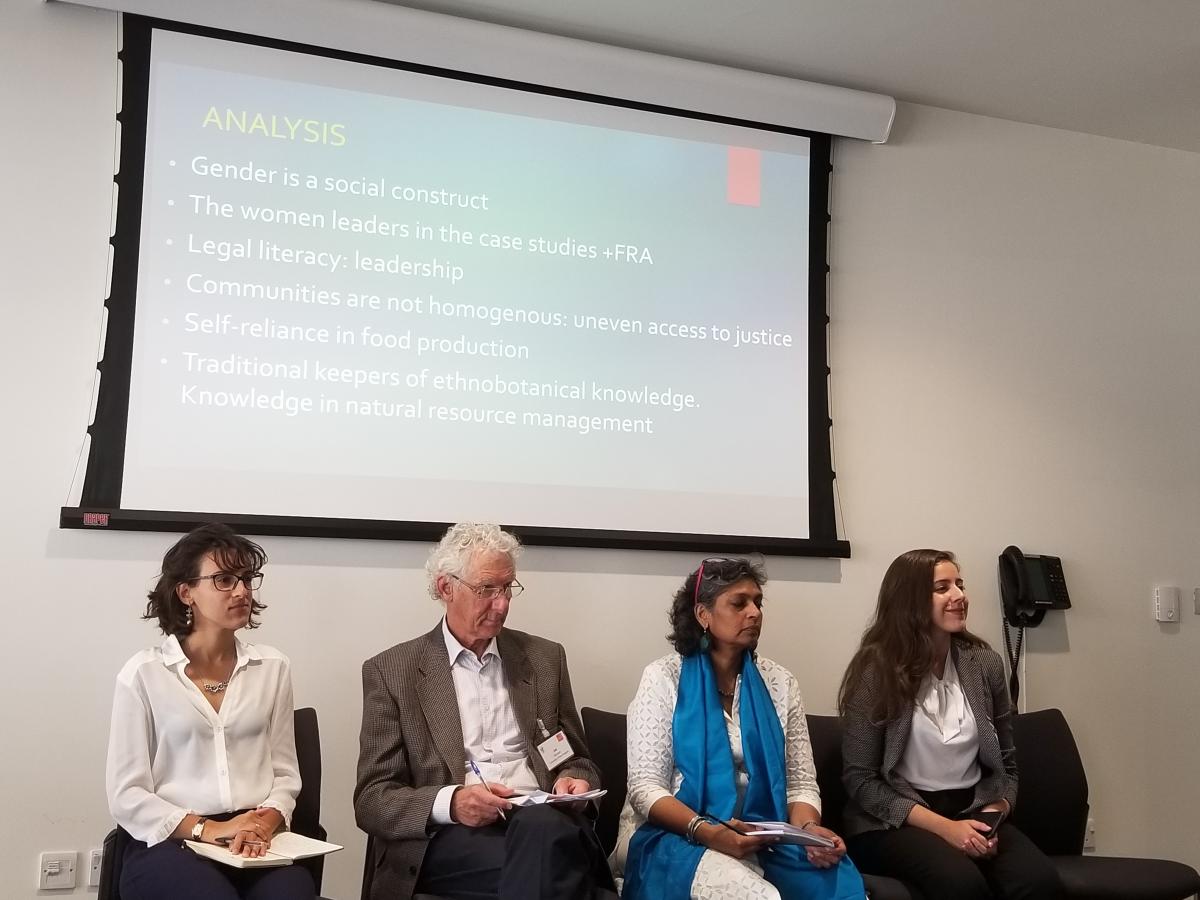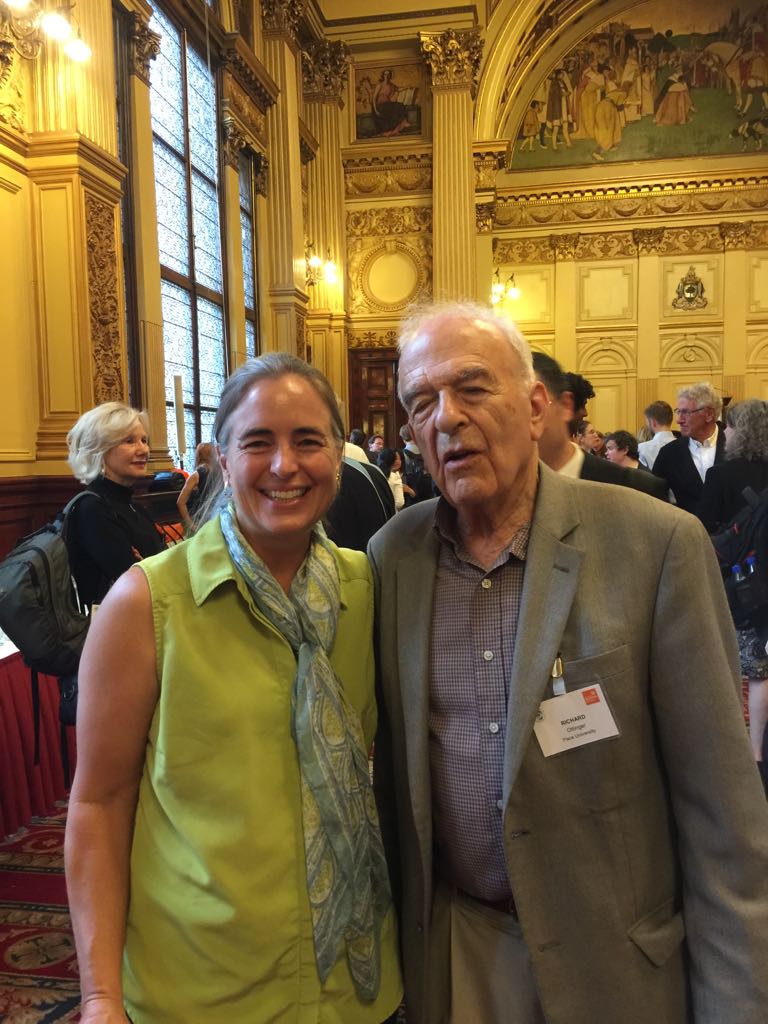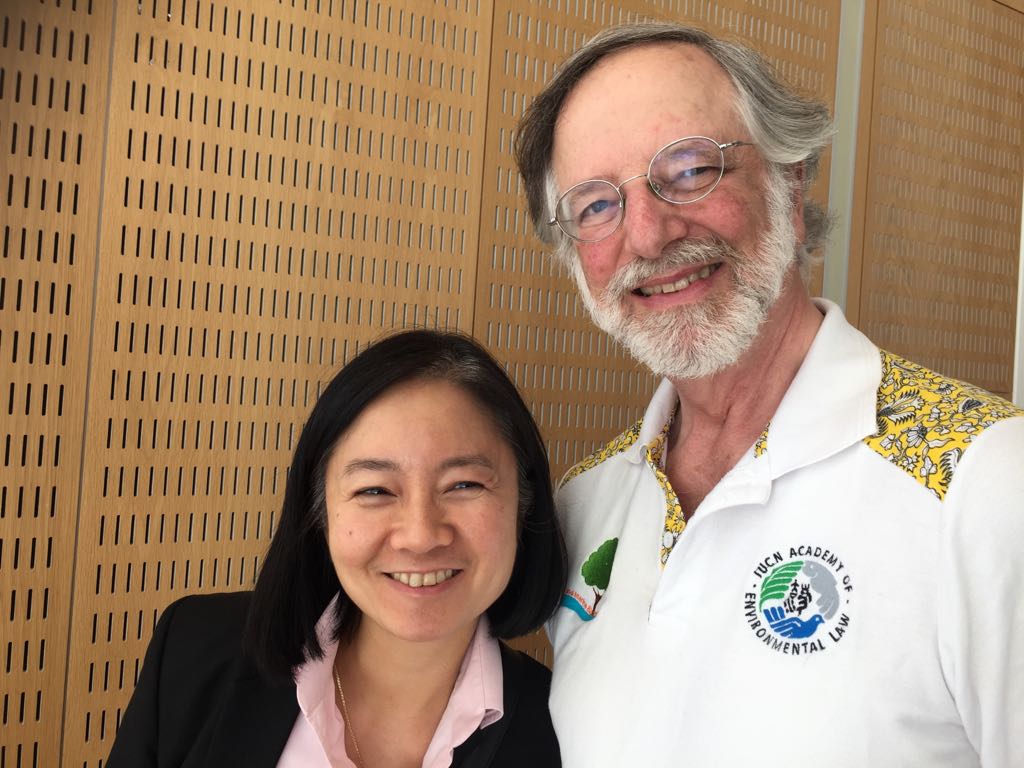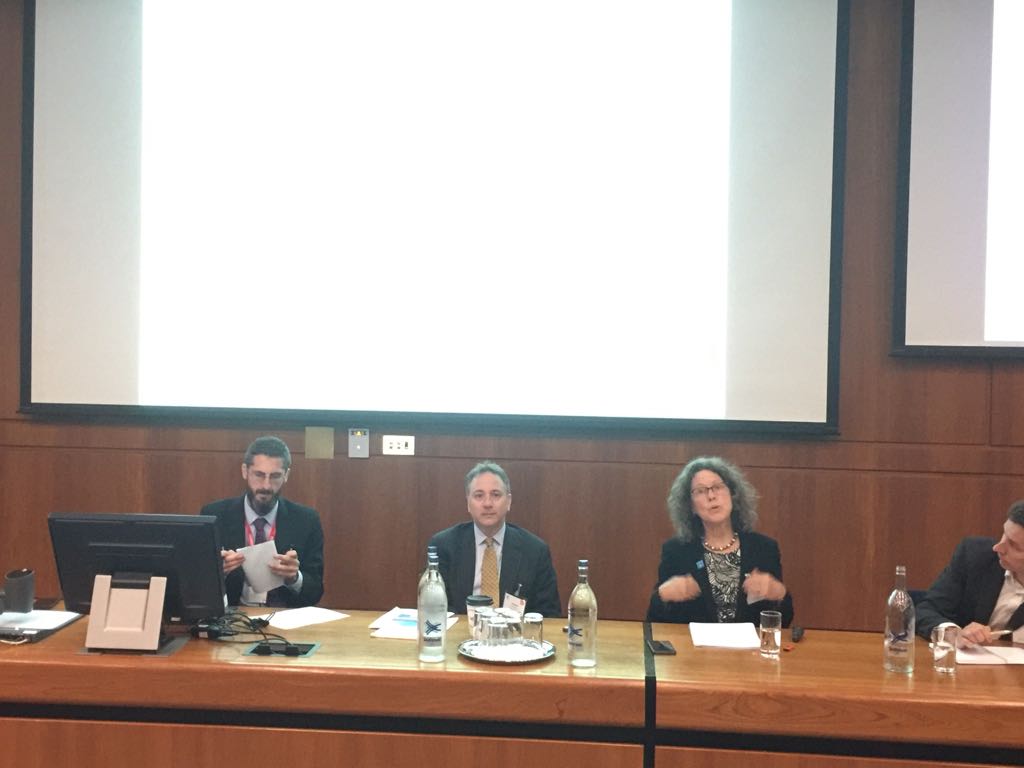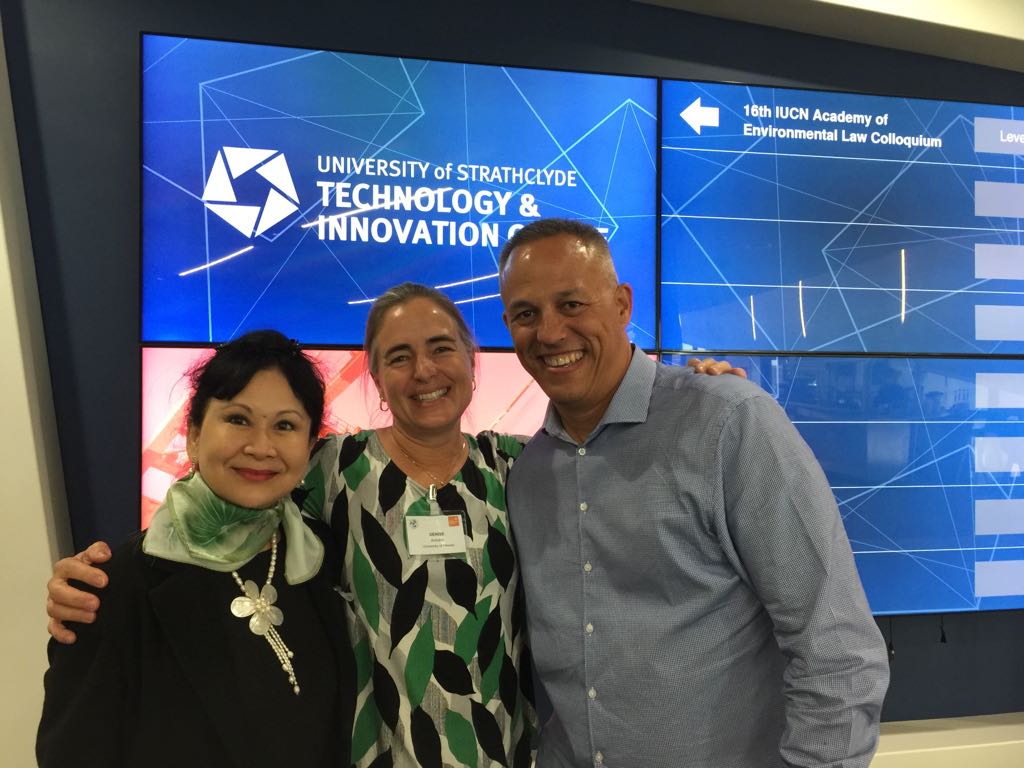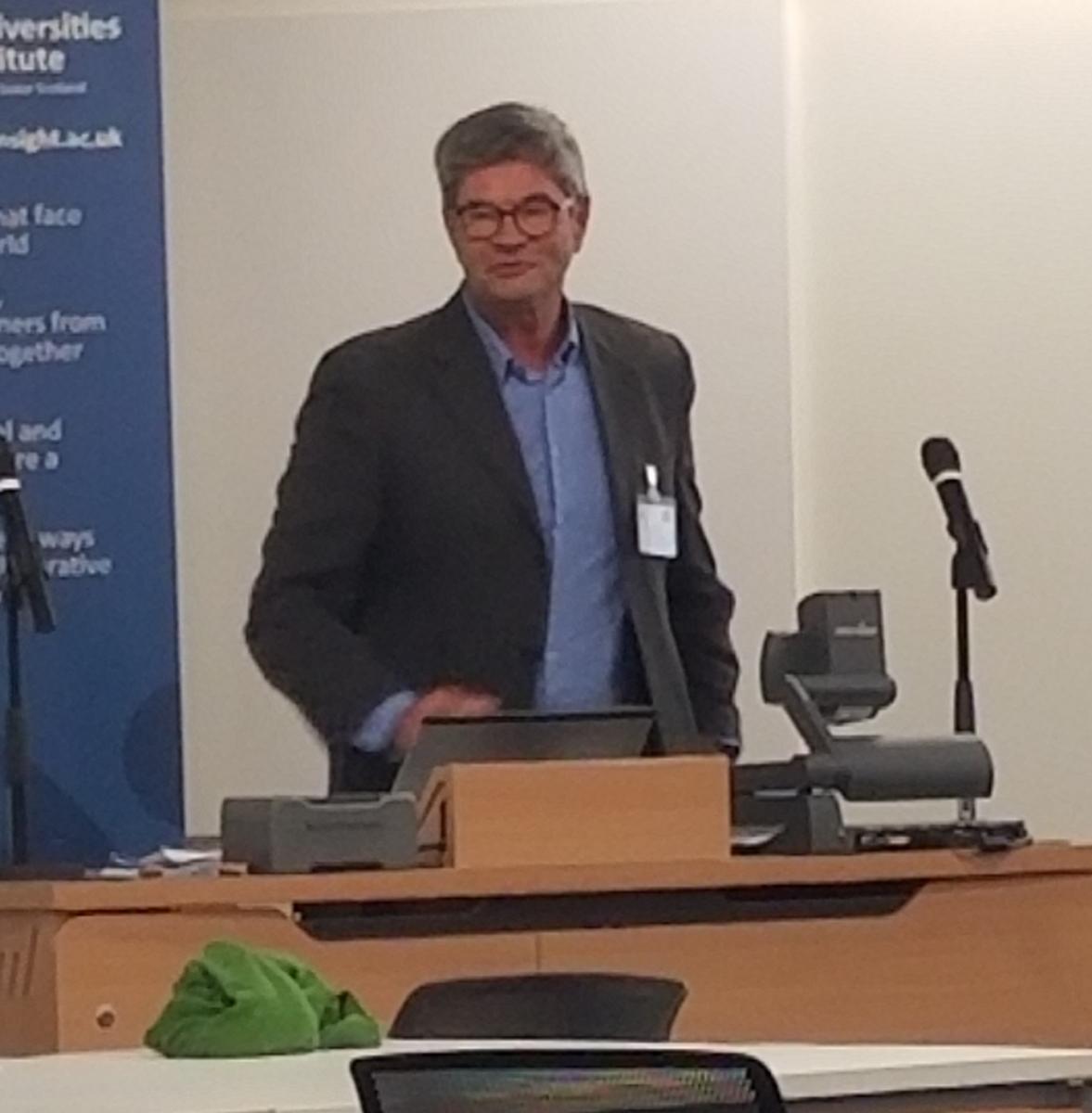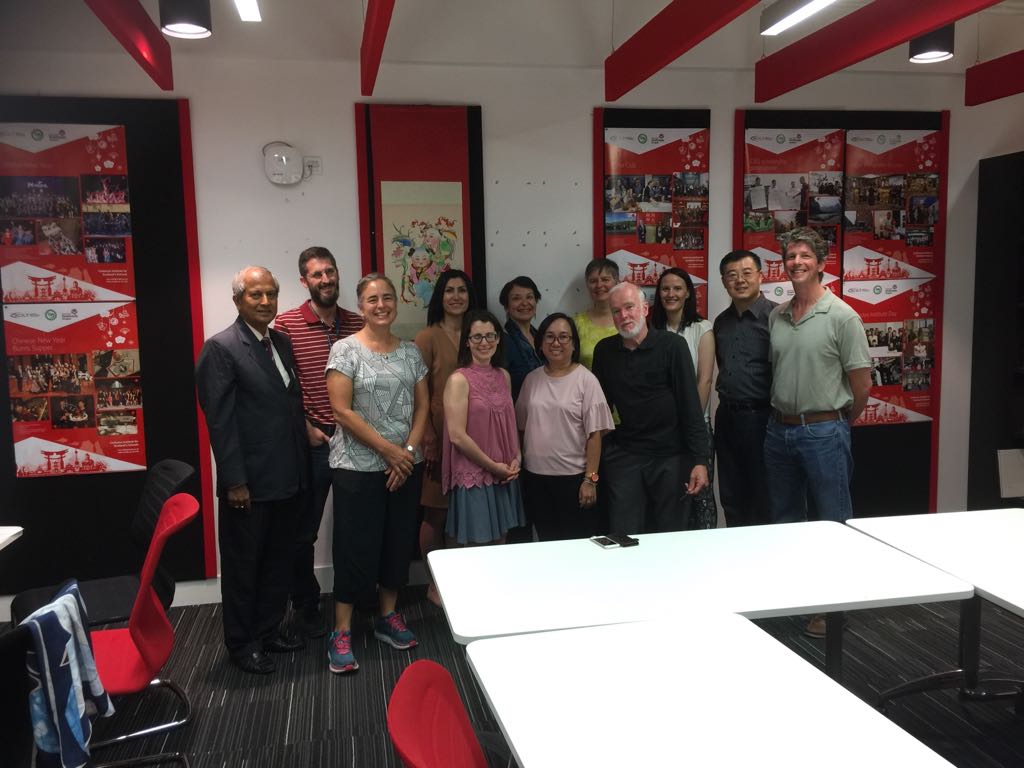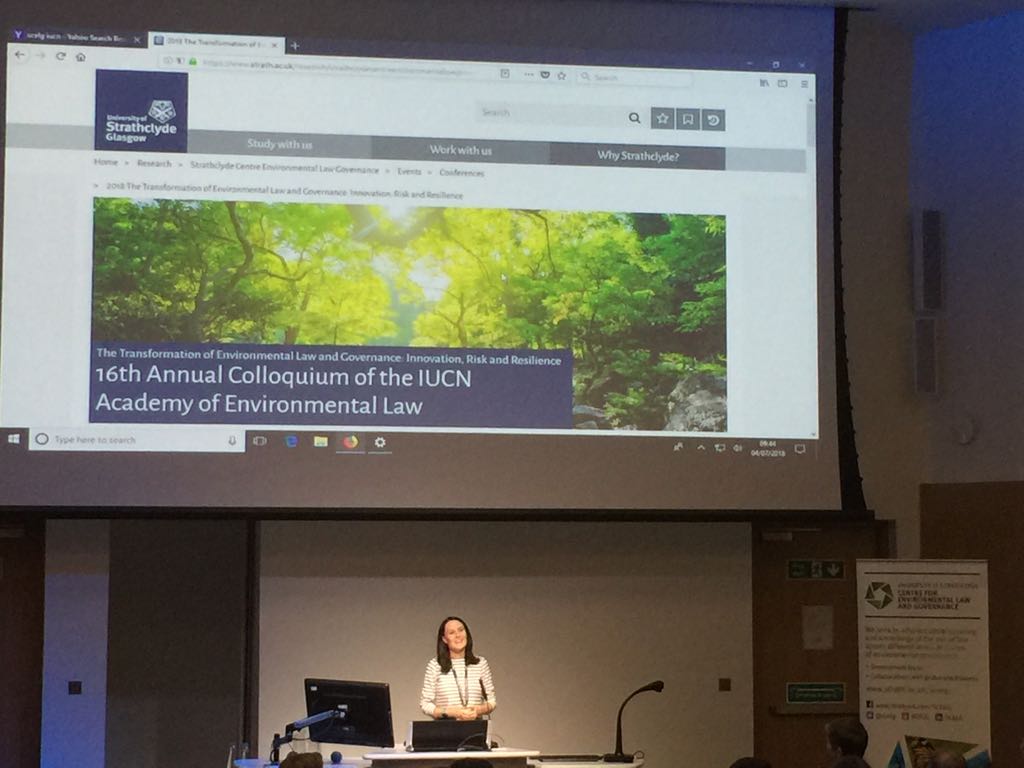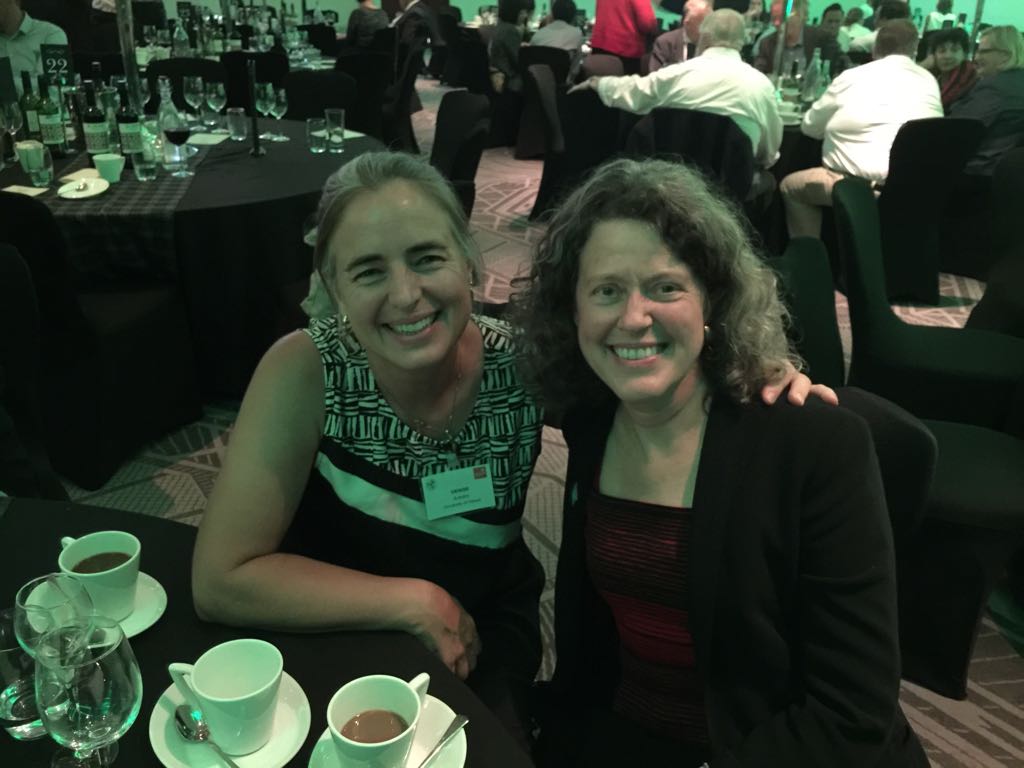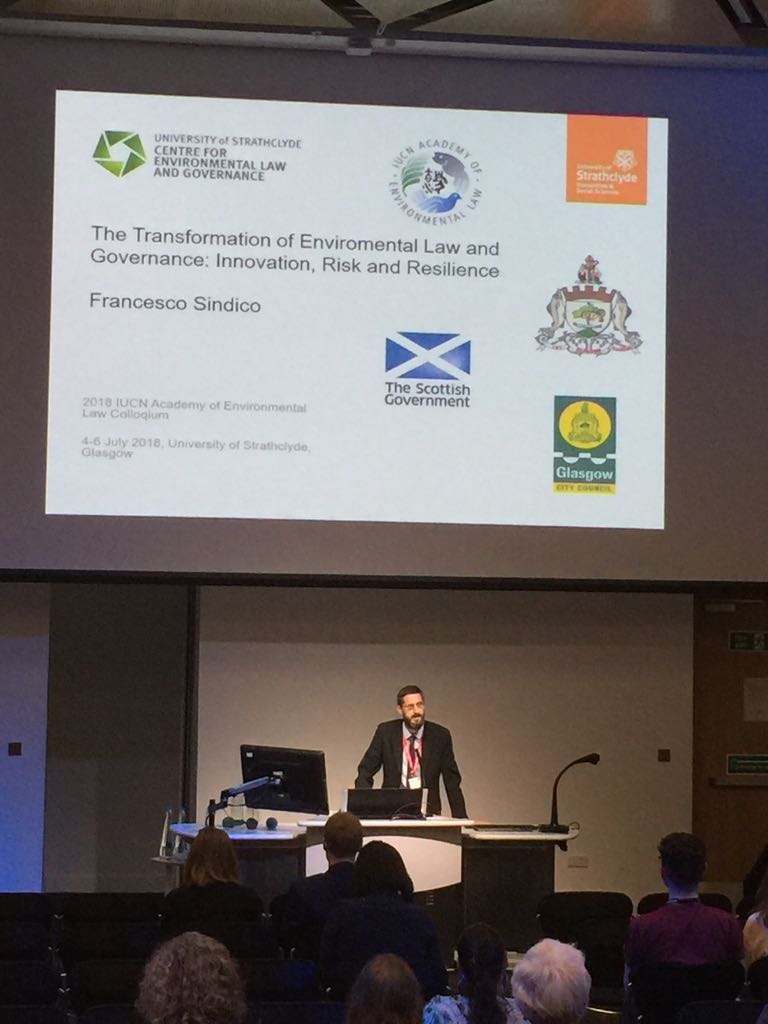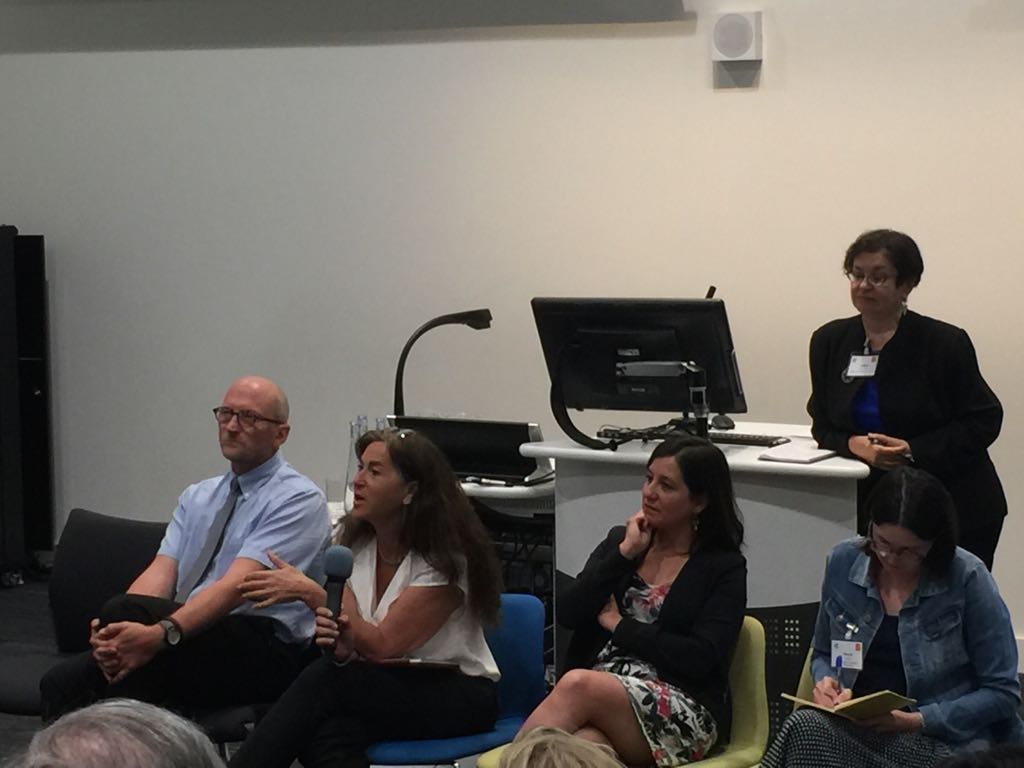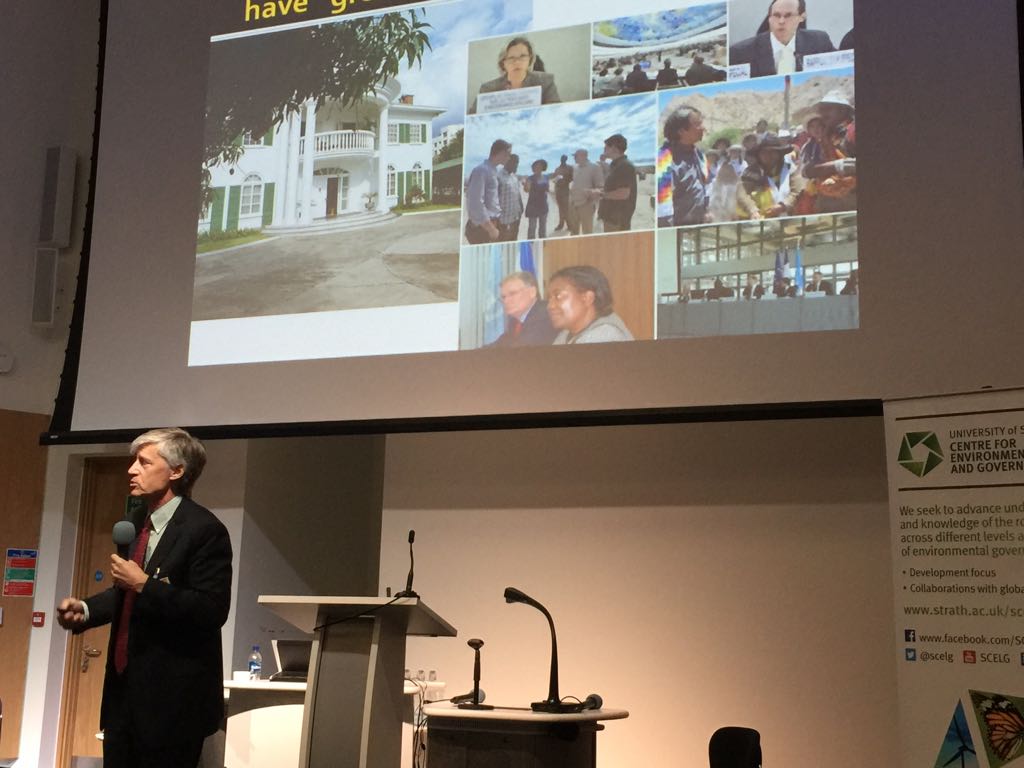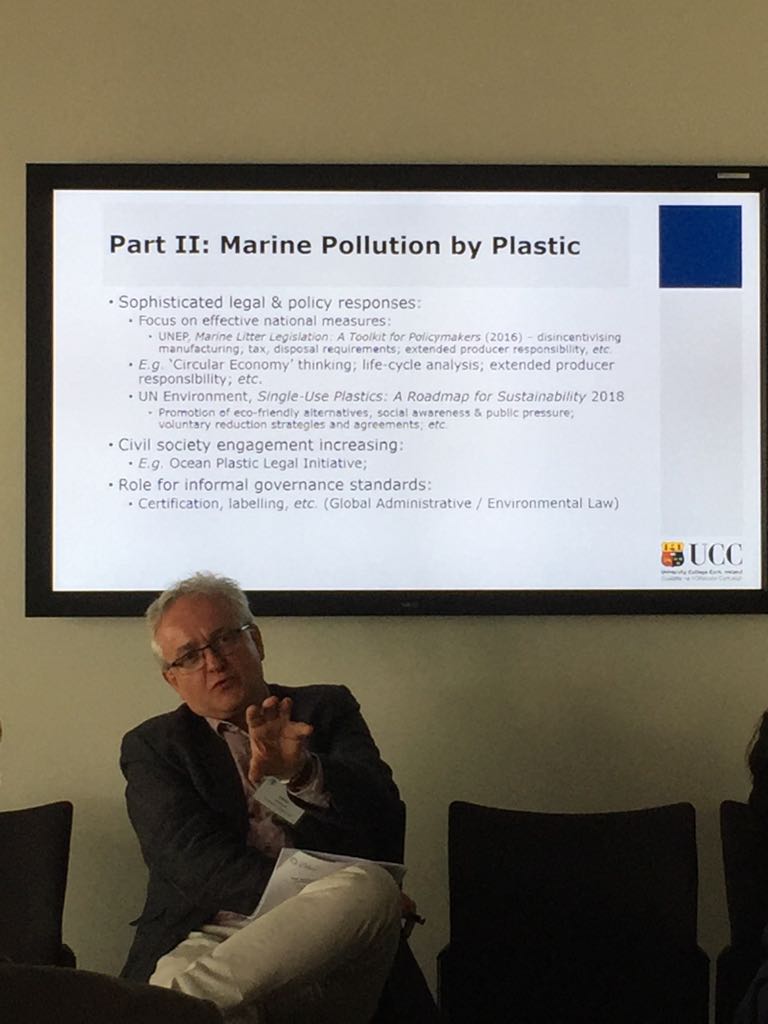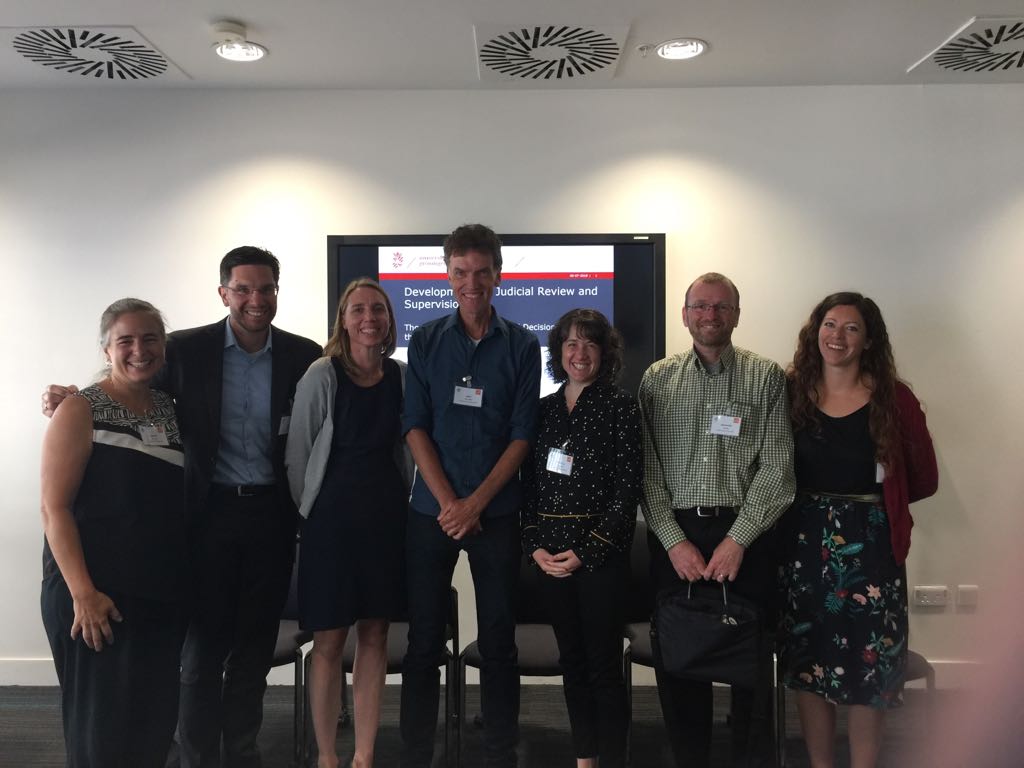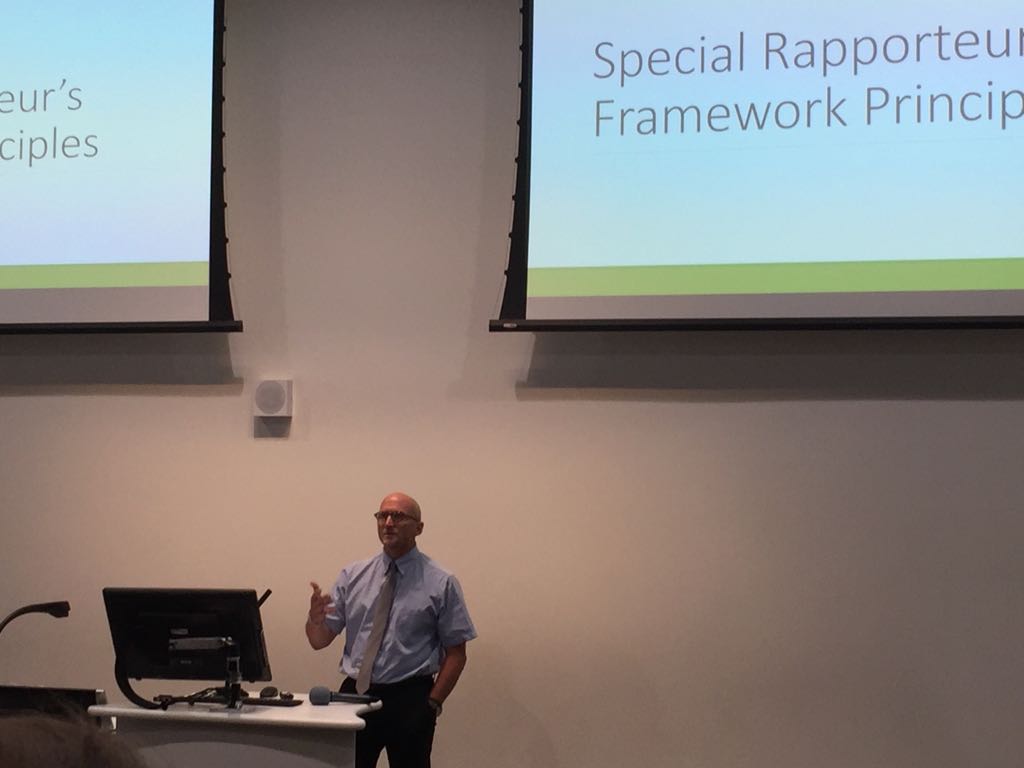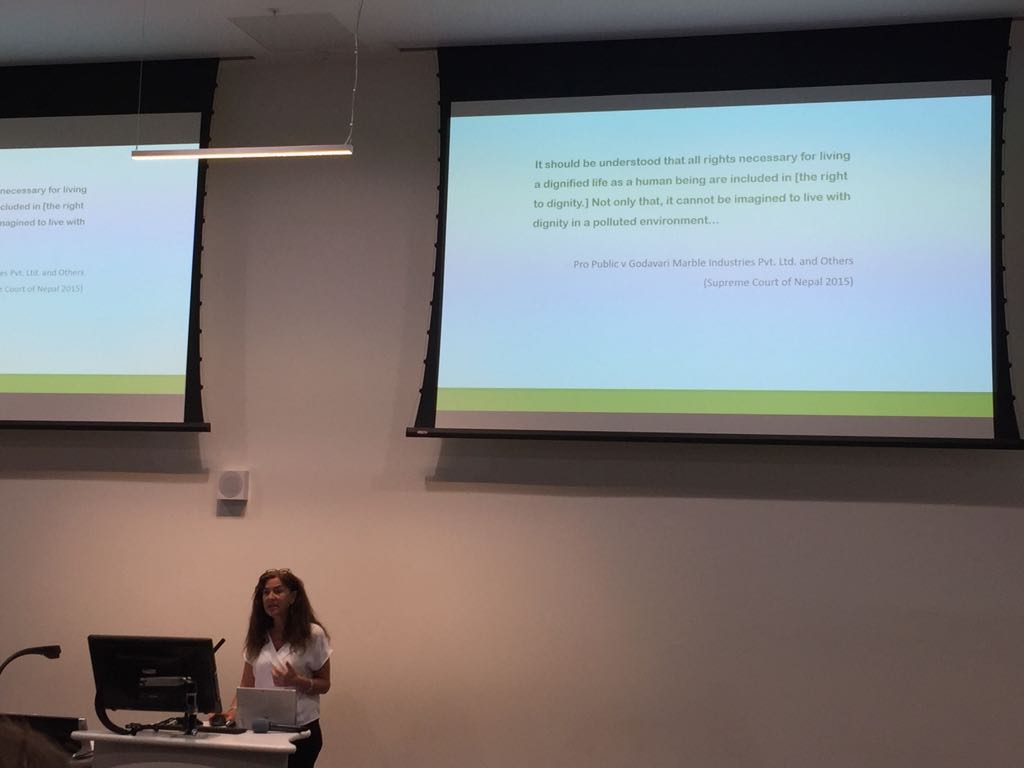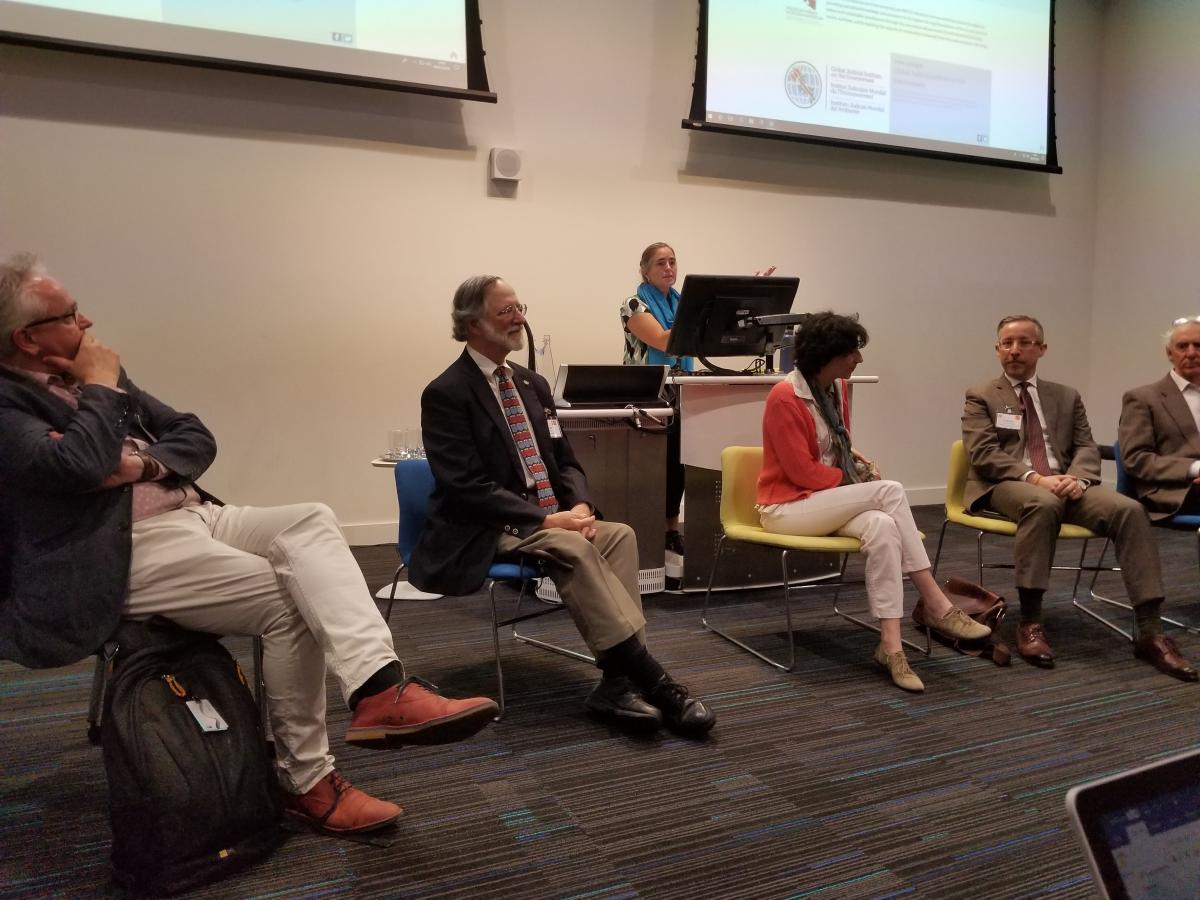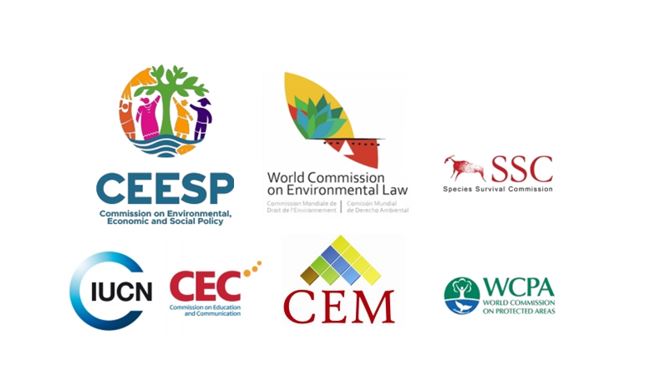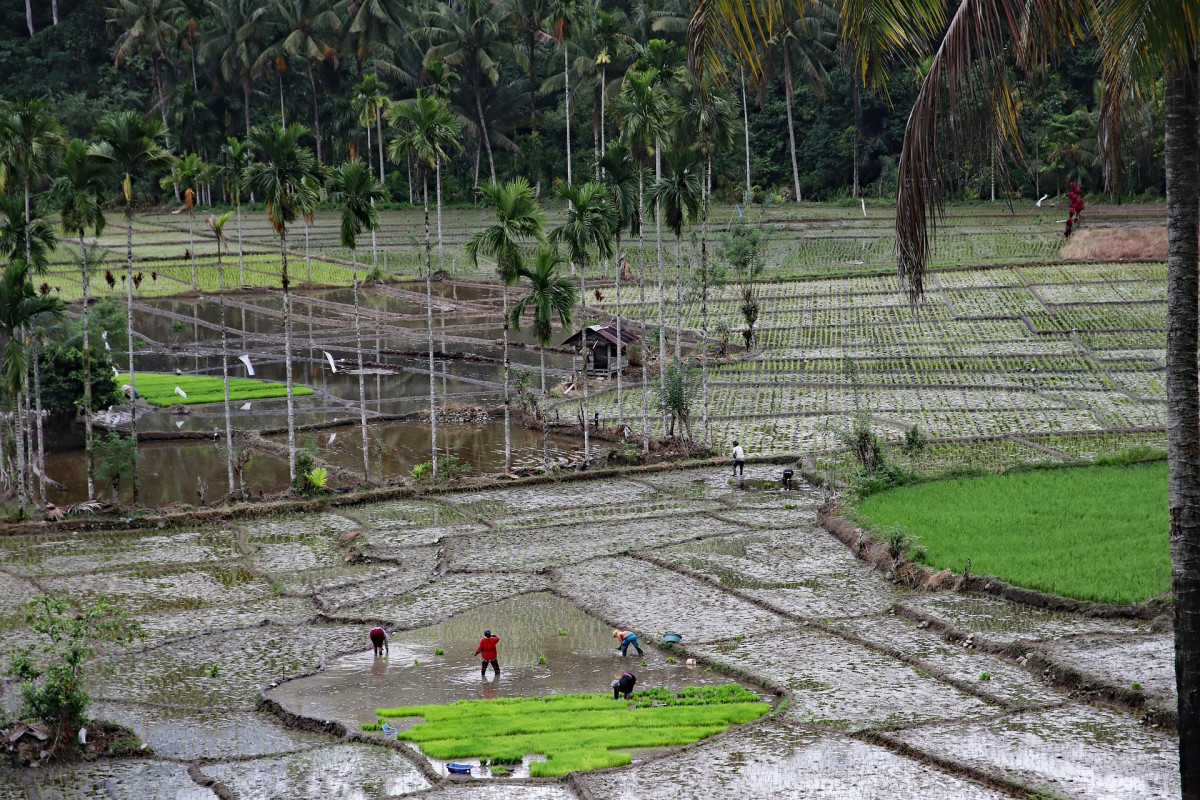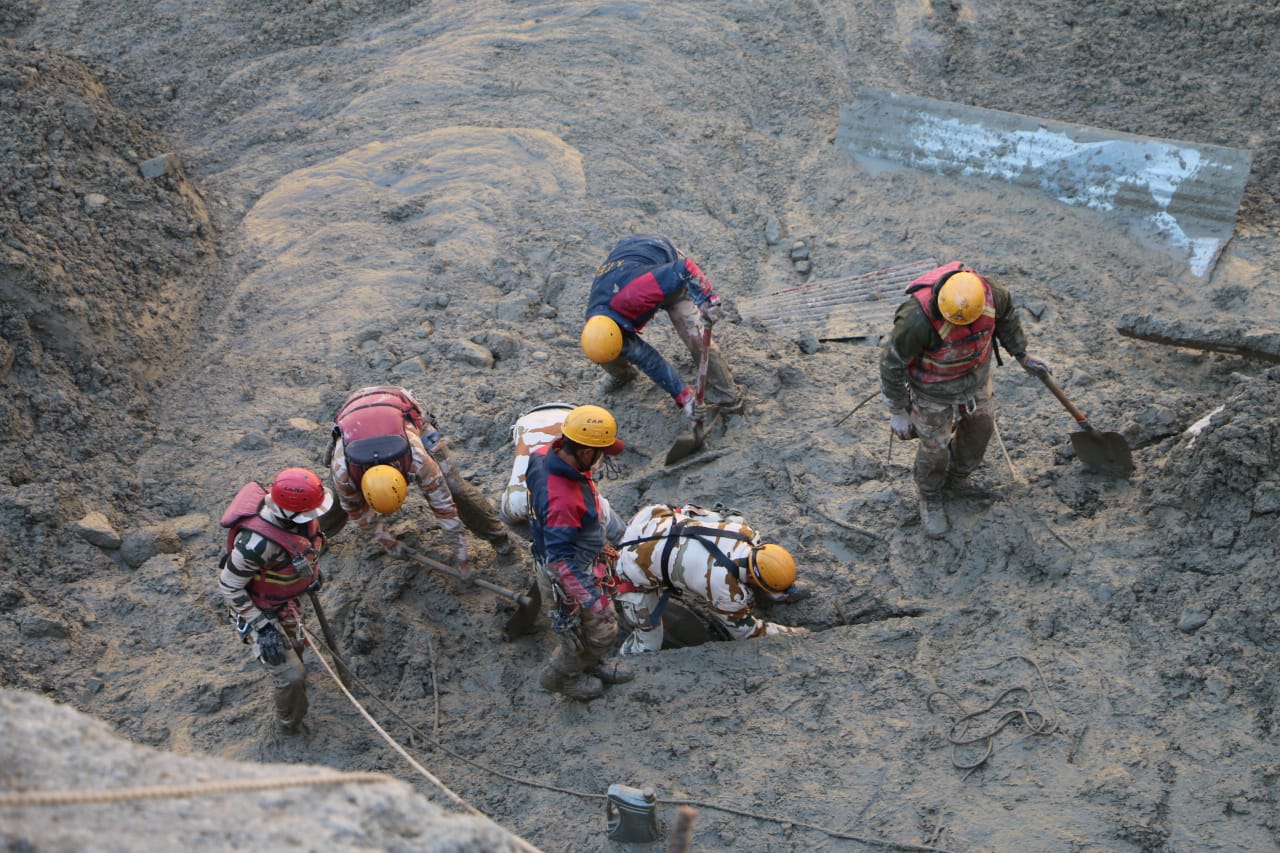16th IUCN Academy of Environmental Law Colloquium
Strathclyde University in Glasgow, Scotland hosted the 16th IUCN Academy of Environmental Law Colloquium from 4-6 July 2018. Many WCEL Members presented and participated in the event.
The 16th IUCN Academy of Environmental Law Colloquium, held from 4-6 July 2018, brought together over 300 participants from six continents to discuss current international, comparative, national, and local environmental law issues. The theme of the Colloquium was “The Transformation of Environmental Law and Governance: Risk, Resilience and Innovation.” Hosted at the University of Strathclyde in Glasgow, Scotland, the three-day event featured over sixty parallel sessions, five plenary sessions, and twenty poster presentations. In addition, in the days preceding the Colloquium, the Academy Board of Governors held a two-day meeting, and the Academy research committee and teaching committees held popular day-long workshops.
The World Commission on Environmental Law (WCEL) had over sixty Members present at the Colloquium, many of whom presented their research during the parallel sessions. This high level of participation by WCEL at the Colloquium reflects the strong historical partnership between the Academy and WCEL. As sister organizations, they have interlocking boards, and many of WCEL’s individual Members belong to the 200 academic institutions that constitute the membership of the Academy. In this brief video, Professor Nick Robinson explains the history of the relationship between the two organizations.
WCEL Leadership Presentations
WCEL’s leadership played a strong role throughout the Colloquium including:
Antonio H. Benjamin, WCEL Chair and IUCN Academy of Environmental Law Governing Board Member, Plenary Opening Session - The Partnership between WCEL and the Academy.
Cymie Payne, WCEL Oceans, Coasts, and Coral Reefs Specialist Group Chair - Roots and Branches of Compensation for Environmental Harm, for the panel on Costa Rica-Nicaragua and Compensation for Environmental Harm.
Klaus Bosselmann, WCEL Ethics Specialist Group Chair - Key Issues of Ecological Law and Governance, during the panel he chaired on Ecological Law and Governance.
Owen McIntyre, WCEL Water and Wetlands Specialist Group Chair Emeritus - Getting to Grips with Land - Based Sources of Marine Pollution: The Challenge for International Watercourses Law, during the panel Transboundary Water Governance.
Ian Hannam, Soil Desertification and Sustainable Agriculture Specialist Group Chair Emeritus - Governance of Pastoral Lands, during the panel Land Governance.
Nicholas Robinson, WCEL Chair Emeritus - Climate Change Induced Migration and Urban Planning: A New Agenda for Sustainable Development, during the panel Climate Change and Cities.
Elizabeth A. Kirk, President of Governing Board of IUCN Academy of Environmental Law and WCEL Steering Committee Member - Protection of the Marine Environment and Species & Benefit-Sharing and Mapping International Law to Dynamic Three-Dimensional Ecosystems.
As President of the Academy, Elizabeth, who is from Glasgow, also gave warm thanks and remarks at the Closing Plenary for the Colloquium, partially in her "native Glaswegian."
Denise Antolini, WCEL Deputy Chair, chaired the panel, Climate Change: Process, Planning and the Rule of Law and gave remarks during the Closing Plenary. She also participated in the two-day Governing Board meeting on 1-2 July on behalf of WCEL.
WCEL Members’ Meeting
WCEL hosted a meeting for current and potential Members on July 7, the last day of the Colloquium. Deputy Chair Denise Antolini explained the benefits of joining WCEL and articulated the partnership between WCEL and the Academy. She invited Nicholas Robinson, Ian Hannam, Owen McIntyre, Michael Hantke-Domas, and Nathalie Herve-Fournereau to answer questions about WCEL. Over sixty people attended and over forty participants expressed interest in joining WCEL.
Closing Plenary, Proceedings Publication, and the 17th Colloquium in Malaysia
During the closing plenary remarks on behalf of WCEL, Denise Antolini emphasized the importance of the partnership between WCEL and the Academy noting the extensive participation of WCEL Members at the Colloquium. Both Antolini and Elizabeth Kirk thanked Francesco Sindico and Stephanie Switzer of the Strathclyde Center for Environmental Law and Governance (ELGA) for their highly successful organization of the Colloquium and all the various pre-Colloquium events as well as several elegant and fun social gatherings. During his closing remarks, Sindico announced the Academy’s intention to publish the Colloquium proceedings with Edward Elgar.
As part of the closing, the Universiti Teknologi MARA in Shah Alam, Malaysia announced that it will host the 17th IUCN Academy of Environmental Law Colloquium from August 5-9, 2019. Normawati Hashim presented a video featuring the facilities that will host the 17th Colloquium and she invited the Academy members to attend next year.
WCEL Members Who Chaired/Presented Sessions
In addition to the presentions by WCEL leadership listed above, over sixty WCEL members chaired or made presentations at the three days of parallel sessions.
Afshin Akhtar-Khavari, Queensland University of Technology, chair, Climate Law, Technology, and Legal Discourse and Technology and the Recovery of Nature in the Anthropocene Epoch
Albert Ruda, Universitat de Girona, Spain, When the ground starts shaking: who bears the risks of hydraulic fracture?
Alena Kodolova, Saint Petersburg Scientific Research Center for Environmental Safety, Russian Academy of Science, Legal regulation of the use of genetically modified organisms in the field of export and import of agricultural products in the CIS: international and national aspects
Alexander Solntsev, Department of International Law, People's Friendship University of Russia (RUDN-University, Moscow), Genetic resources, traditional knowledge, indigenous people and principle of resilience
Amber Prasad Pant, Tribhuvan University, Kirtipur, Kathmandu, Nepal, chair, Sustainable Agriculture and Food Systems: From Law-making to Implementation and Rights of Landlocked Countries under Law of the Sea and Transit Agreements: A case study of Nepal
An Cliquet, Ghent University, Belgium, Restoring species from extinction: is the law ready for a real Jurassic Park?
Anastasia Telesetsky, University of Idaho, Messages in Plastic Bottles? Reflections on International and Domestic Law and Policy Interventions to Manage Marine Plastic
Ancui Liu, Maastricht University, Netherlands, The international liability and redress regime regarding environmental damage by cultivation of genetically modified crops
Andri G. Wibisana, University of Indonesia, A Tale of Climate Justice: The Indonesian Case – Hope or Nope?, Valuation of Natural Resource Damage (NRD) from Oil Pollution in Indonesia: Critical Comments of NRD Assessment in the Montara Case, and Reclamation and Post-Mining Guarantees in Indonesia: An Economic Instrument Suited for Indonesia?
Anél du Plessis, North-West University, South Africa, chair, Smart and Sustainable Cities, and The Metabolism of the City and the Pursuit of Urban Climate Resilience
Annalisa Savaresi, University of Stirling, UK, Benefit-sharing and Renewable Energy Generation: A Means to a Just Transition? and Climate Change in Courts
Benoit Mayer, The Chinese University of Hong Kong, Hong Kong, China, Regulating Bioenergy with Carbon Capture and Storage: Existing and Emerging Principles
Bjørn-Oliver Magsig, University College Cork, Ireland, Environmental justice in the age of geoengineering: Can international law control Pandora’s box?
David Grinlinton, The University of Auckland, New Zealand, Legal Issues arising from advanced monitoring and surveillance for environmental compliance and enforcement
David Leary, University of Technology Sydney, Australia, Synthetic Biology is a ‘Game changer’ for biotechnology. What are its implications for international environmental law?
Donna Craig, Western Sydney University, Australia, Legal Governance of Biosphere reserves in the Asian and Pacific Regions: Resilience and Risk in Marginalized and Vulnerable Communities across Different Cultures
Elodie Le Gal, School of Law, University of Aarhus, Aarhus, Denmark, Drug pollution from manufacturing and antimicrobial resistance: How does the European Union manage the potential environmental and health risks of importing pharmaceutical active ingredients manufactured in third countries?
Erin Daly and James R. May, Widener University, Wilmington, Delaware, USA, Indivisibility of Human Rights and the Environment?
Erin Daly, Director of GNHRE; Delaware Law School, USA, Facilitator, Integration of Special Rapporteurs Procedures Beyond the UN
Freedom-Kai Phillips, Center for International Governance Innovation, Waterloo, Canada Participation of “Non-Party Stakeholders” under the UN Framework Convention on Climate Change: Options for Future Engagement
Gayathri D. Naik, SOAS, University of London, UK, Inter sectorial allocation of groundwater in India and water scarcity in cities: Human Right To water v Human Right to food?
Hitoshi Ushijima, Chuo University, Tokyo, Japan, How Does EIA Public Participation Work on Japan’s Energy Policy?
John Knox, UN Special Rapporteur on the Environment and Human Rights - The Human Right to a Healthy Environment, during the UN Special Rapporteurs Plenary Session
During the Colloquium field trip to Loch Lomond, John Knox summarized his proposal that the UN adopt a universal human right to a clean and healthy environment.
Jonathan Liljeblad, Swinburne University of Technology Law School, Melbourne, Australia, A Risk Model to Assess World Heritage Sustainable Development Implementation: A Case Study of Pyu Ancient Cities, Myanmar
Jonathan Verschuuren, Tilburg University, Netherlands, Towards an EU regulatory framework for climate smart agriculture: the example of soil carbon sequestration
Kathryn Gwiazdon, Center for Environmental Ethics and Law, Florida, USA, Role of Ethics in Ecological Law and Governance
Larissa Verri Boratti, King’s Brazil Institute, King’s College London, UK, and, Karen Kassmayer, Legislative Consultant, Federal Senate of Brazil, Brasília-DF, Brazil, Environmental Law-making in Brazil: the Case of Regulating the Access to Biodiversity
Lee Paddock, George Washington Univ. Law School, USA, Citizen Science in Support of Environmental Protection: Innovation, Opportunities, and Barriers
Leonie Reins, Tilburg University, Netherlands, chair, Climate Change Impacts and Adaptation and The Inter-Play between Innovation and Regulation: Carbon Capture and Storage in the European Union
Loretta Feris, University of Cape Town, South Africa, The Use of Technology in Times of Environmental Disaster: Trumping Human Rights?
Loretta summarized her remarks on the de-colonization of environmental law in this short video:
Louis J. Kotzé, North-West University, South Africa, Law and the Governance of Risk, Innovation and Resilience in the Anthropocene: Towards a new Lex Anthropocene? and Integration of Special Rapporteurs Procedures Beyond the UN
Lye Lin Heng, Asia-Pacific Centre for Environmental Law (APCEL), National University of Singapore, Fresh Water for Singapore and Phnom Penh – Environmental Law, Policy, Governance & Management: Lessons in Innovation, Risk & Resilience
Marcia Dieguez Leuzinger, University Centre of Brasilia, Brazil, International patent system of genetically modified seeds and national public welfare: courts activism and protection of local interests
Maria Antonia Tigre, Elisabeth Haub School of Law, Pace University, USA, The Global Pact for the Environment as a Framework for International Law
Maria Lee, University College, London, UK, Wind Energy Infrastructure: Governing Scale
Maria Socorro Manguiat, UNEP, chair Climate Change, Business and Human Rights
Marie Bonnin, French National Institute for Sustainable Development, France, Measuring the effectiveness of marine environmental law: leveraging environment protection through the use of innovative tools
Marie-Catherine Petersmann, European University Institute, Florence, Italy, Conflict Adjudication or Expert Rule? Scientific Semantics of Legitimacy in Environmental Cases
Marina Venancio, Federal University of Santa Catarina, Brazil, Hydropower generation and the resilience of traditional communities: the conflicts in the Belo Monte case & Rights of Nature in Brazilian Case-Law: a feasible approach for global risks? and Agroecology, law and resilience
Marleen van Rijswick, Utrecht University, Netherlands, Dealing with environmental risks of marine renewable energy developments in EU waters
Massimiliano Montini, University of Siena, Italy, The Genesis of ELGA: From the Oslo Manifesto to the Siena Declaration and Envisioning an ecological approach to environmental law
Meinhard Doelle, Dalhousie University, Halifax, Canada, chair, Liminal Spaces in Energy Governance and presented Environmental Assessment as a Climate Mitigation Tool
Michael Hantke-Domas, Justice of the Third Environment Court of Chile, Ecosystem services and the adjudication of environmental damage disputes: the birth of an environmental tort
Michel Prieur and Mohamed Ali Mekouar, International Center for Comparative Environmental Law, University of Limoges, France, A New Frontier in Human Rights Law: The Proposed Third International Covenant on the Right of Human Beings to the Environment (presented on behalf of the authors by Nathalie Herve-Fournereau and Alexandra Langlais)
Niko Soininen, University of Lapland, University of Eastern Finland, and University of Gothenburg, Legal Mechanisms Facilitating and Hindering Transitions towards Sustainable Blue Economy
Noriko Okubo, Osaka University, Japan, Public Participation in EIA and its indicator from the Asian perspective
Patricia Galvao Ferreira, Univ. of Windsor, Canada, Unpacking the Law and Governance Aspects of South-South Technological Cooperation in the Climate Regime
Patryck de Araujo Ayala, Federal University of Mato Grosso, Brazil, Fracking situations: how far do our environmental laws go when it comes to technological uncertainties?
Paul Martin, Australian Centre for Agriculture and Law, University of New England, Australia, chaired The Legal Challenges of Genetic Modification: Thinking Through the Issues and presented The merging frontiers of future-tech and agro-ecological governance and Meta-governance for biodiversity protection in Australia and Brazil
Prue Taylor, University of Auckland, New Zealand, Oceans Governance and Marine Protected Areas: Turning the Tide
Ricardo Pereira, Cardiff University, UK, The Nexus Between ‘Energy Security’ and ‘Ecological Security’: the Case for an Integrated Policy Framework for Effective Mitigation and Adaptation to Climate Change
Richard Ottinger, Elisabeth Haub School of Law, Pace University, NY, Community Renewable Energy Innovation Laws for Sustainable Development
Robert Fowler, University of South Australia, New Principles for the Next Generation of Environmental Law
Robert V. Percival, University of Maryland Carey School of Law, chaired Keynote Plenary and presented A History of Innovation in Global Environmental Law and Policy
Rose-Liza Eisma Osorio, University of Cebu, Philippines, chaired Indigenous innovation, Participation and resilience in biodiversity law and governance and presented Dolphins’ Right to Sue through Human Legal Guardians
Samantha Ribas Teixeira, Universidade do Estado do Rio de Janeiro, Rio de Janeiro, Brazil, The Brazilian Legal Policy on Environmental Education: An analysis of the measures adopted to promote biodiversity conservation prior to environmental damage
Simone Borg, University of Malta, Climate Proofing Ocean Governance: A Journey through Unchartered Waters
Stefan Gruber, Hakubi Center for Advanced Research, Kyoto University, Japan, Cultural Heritage Protection and Sustainable Development in Asia
Stephen Minas, Peking University, Shenzhen, Guangdong, China, The UNFCCC Technology Executive Committee as a Driver of Innovation in the Law and Governance of Climate Technology
Stephen Turner, Lincoln University, UK, The role of technology in determining the standard of protection afforded by environmental rights
Tianbao Qin, Wuhan University, China, Social Transformation and Environmental Law: Challenges and Responses and Progress of Public Participation in Environmental Decision-Making in China: A Slow but Right Direction towards Sustainability
Tseming Yang, Santa Clara University School of Law, California, USA, The Emergence of the Environmental Impact Assessment Norm as a Global Environmental Law Principle
Volker Mauerhofer, Meiji University, Tokyo, Japan, The EU - Water Framework Directive Protect Case on Climate Change, Technical Progress and Access to Justice: Background, Practices & Pitfalls
WCEL Member Poster Presentations
Deepa Badrinarayana, Chapman University, California, USA, The Right to Equal Protection and Assessment of Technological Risks
Hanim Kamaruddin, Universiti Kebangsaan Malaysia, Malaysia; Dina Iman Supaat, Universiti Sains Islam Malaysia, Malaysia and; Rasykah Mohd Khalid, Universiti Kebangsaan Malaysia, Malaysia, Are Business Enterprises Accountable for the Protection of the Environment – the Perspective of the Human Rights?
Marcia Leuzinger (in absentia), Brasília University Centre, Brasília and Presbyterian Mackenzie University, São Paulo, Brazil, Remotely Piloted Aircrafts (RPAs): potential allies of Brazilian biodiversity conservation
Rafael González Ballar, University of Costa Rica, Social resilience an alternative to the process of adaptation of wildlife in Costa Rica (necessary changes in public policies and legislation)
Samantha Ribas Teixeira, Pontifı́cia Universidade Católica do Paraná, Curitiba, Brazil, Socio-environmental rights within the courts of justice: Can an inauthentic interpretation of procedural law contribute for the ineffectiveness of diffuse rights?
